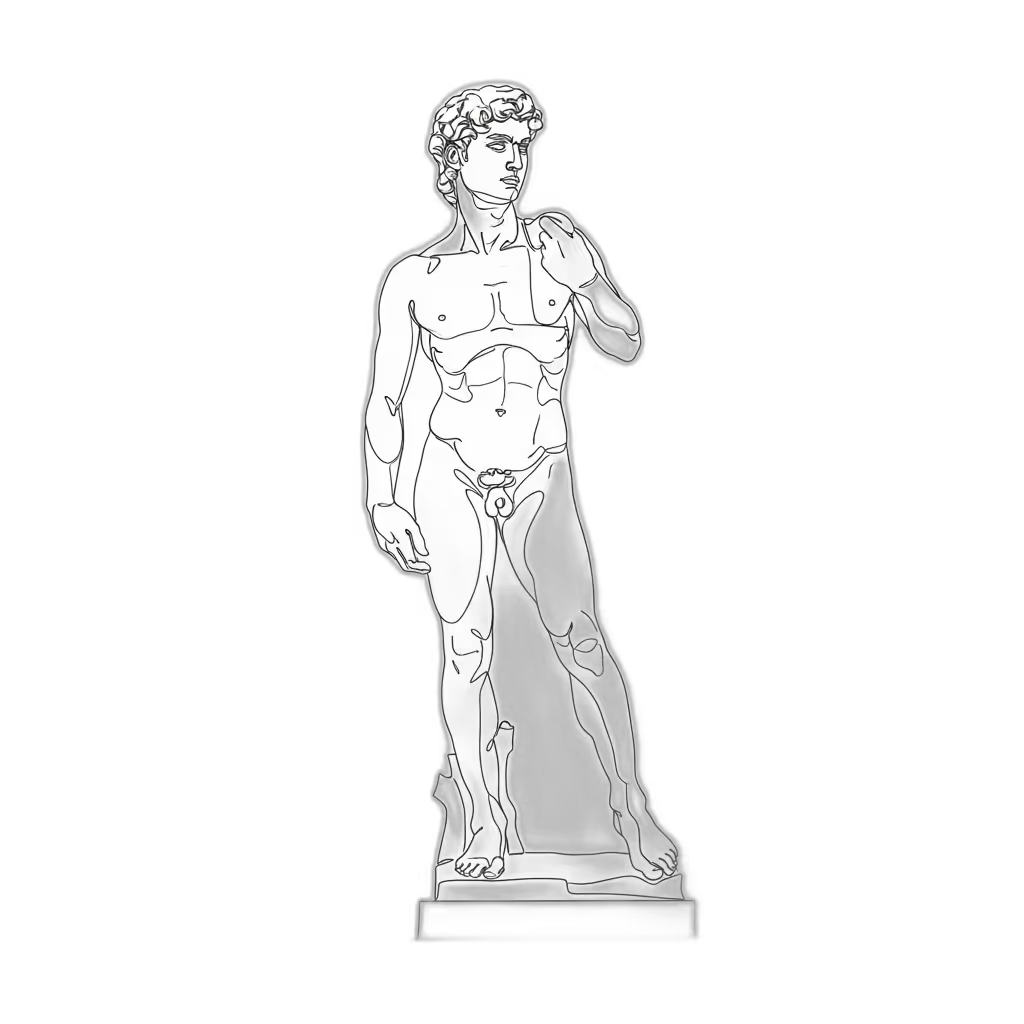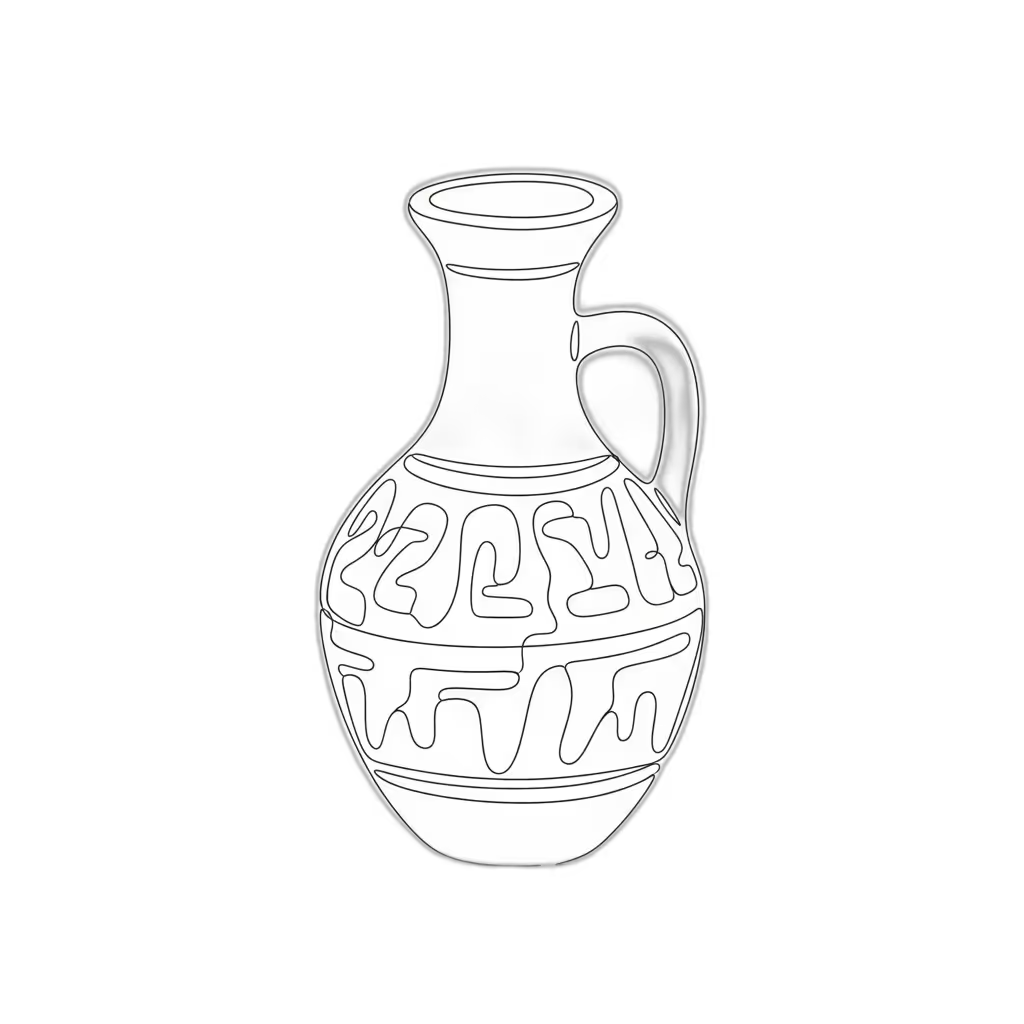About Artwork Appraisals for Estate Tax
Frequently Asked
Questions
No Frequently Asked Questions Found.
What is Estate Tax?
Estate tax is a critical financial mechanism that applies to the transfer of wealth after an individual's death. Imposed by federal and state governments, this tax is levied on the net value of a deceased person's assets before distribution to heirs. The tax encompasses a comprehensive range of property, including real estate, financial investments, cash reserves, personal belongings, and other valuable holdings.
The fundamental principle behind estate tax involves assessing the total value of an individual's estate at the time of their passing. As of 2023, the federal estate tax exemption stands at $12.92 million for individuals and $25.84 million for married couples, meaning estates below these thresholds typically avoid federal taxation. However, the landscape becomes more complex with state-level estate taxes, which may have significantly lower exemption limits.
Calculating estate tax involves a multi-step process that begins with determining the gross estate value. This comprehensive valuation includes diverse assets such as residential properties, financial accounts, investment portfolios, life insurance policies, and personal valuables like artwork or jewelry. After establishing the gross value, specific deductions are applied, including outstanding debts, funeral expenses, and estate administration costs.
The resulting taxable estate is then subject to progressive tax rates, where the tax percentage increases proportionally with the estate's total value. This intricate system underscores the importance of strategic estate planning. Individuals can potentially minimize tax liability through carefully considered approaches like strategic asset gifting, establishing trusts, or making charitable contributions.
While estate tax may seem daunting, it serves as a mechanism for wealth redistribution and government revenue generation. Proactive planning and professional guidance can help individuals navigate these complex regulations, ensuring a more efficient transfer of assets to intended beneficiaries while potentially reducing tax burdens.
Why do I need an appraisal for Estate Tax?
Estate tax appraisals play a critical role in navigating the complex landscape of inheritance and tax regulations. These professional valuations serve as a comprehensive assessment of an estate's assets, providing essential insights for executors, beneficiaries, and tax authorities.
When a loved one passes away, the executor faces the intricate task of determining the estate's total value precisely at the date of death. A professional appraisal becomes indispensable in this process, offering an objective and defensible valuation that meets strict IRS requirements. This detailed assessment helps prevent potential legal complications and ensures accurate tax reporting.
The valuation process goes beyond mere number-crunching. It provides a clear snapshot of an estate's fair market value, which is crucial for calculating potential tax liabilities. Different types of assets—from real estate and business interests to personal property and investments—require specialized expertise to evaluate accurately.
Importantly, these appraisals can reveal potential tax-saving opportunities. Skilled appraisers can identify valuation discounts for specific assets, potentially reducing the overall tax burden. This might include considerations for minority ownership interests, lack of marketability, or other nuanced financial factors that can impact an estate's taxable value.
For families navigating the emotional challenges of estate settlement, a professional appraisal offers transparency and objectivity. It provides a neutral foundation for asset distribution, helping to minimize potential conflicts among heirs and ensuring a fair assessment of the estate's worth.
Beyond immediate tax implications, these appraisals serve as a critical tool for long-term financial planning. They provide valuable information for future decision-making, helping families and financial advisors develop strategic approaches to estate management and potential asset transitions.
What is an Artwork appraisal?
An artwork appraisal represents a comprehensive professional evaluation that precisely determines the monetary and historical value of an art piece. This meticulous process involves expert assessment of multiple intricate factors that collectively influence an artwork's market worth and significance.
Professional art appraisers employ a sophisticated methodology that examines critical elements such as the artwork's provenance, authenticity, physical condition, current market dynamics, and the artist's reputation. Each of these components plays a crucial role in establishing an accurate and defensible valuation.
The evaluation goes far beyond a simple price assessment. Appraisers conduct detailed investigations that may include forensic analysis of materials, historical research into the artwork's origins, and careful examination of minute details that can substantiate or challenge the piece's perceived value. They leverage extensive knowledge of artistic styles, market trends, and collector interests to provide a nuanced understanding of an artwork's worth.
Different stakeholders rely on artwork appraisals for diverse purposes, including insurance documentation, estate planning, potential sale transactions, and tax compliance. The appraisal serves as an authoritative document that provides clarity and confidence for collectors, institutions, and potential buyers.
The complexity of art valuation requires a sophisticated approach that balances objective analysis with deep understanding of artistic and market contexts. A comprehensive appraisal not only quantifies monetary value but also captures the intrinsic cultural and historical significance of the artwork.
Can I get an Artwork appraisal done online?
Online artwork appraisals have become increasingly sophisticated, offering art owners a convenient and comprehensive method to determine the value of their pieces. The process typically begins with submitting high-resolution photographs that capture essential details of the artwork. Professional appraisers carefully analyze these images, examining critical aspects such as condition, artistic technique, and distinctive characteristics.
Beyond visual documentation, appraisers collect contextual information through digital communication channels. Owners provide supplemental details about the artwork's provenance, artist background, and historical significance, which help create a more nuanced valuation. This collaborative approach allows for a thorough assessment without the constraints of physical proximity.
Live video consultations have emerged as an innovative component of online art appraisals. Using platforms like Zoom or Google Meet, appraisers can engage directly with clients, rotating artwork, examining specific details, and conducting real-time discussions. This interactive method bridges the gap between digital and in-person assessment, enabling a more dynamic and comprehensive evaluation.
The digital appraisal process offers substantial benefits, including accessibility for individuals in remote locations, flexibility for busy clients, and reduced logistical complexities. Professional appraisers maintain rigorous standards, ensuring that online evaluations are as meticulous and credible as traditional in-person assessments.
Modern technology has transformed artwork appraisals, creating a streamlined, efficient approach that meets the evolving needs of art collectors and owners. By leveraging digital tools and professional expertise, online appraisals provide accurate, comprehensive valuations with unprecedented convenience.
What are the different types of Artwork appraisals?
Artwork appraisers are specialized professionals who meticulously assess the value of diverse art forms. Their expertise spans multiple domains, each requiring unique skills and deep knowledge of artistic markets, historical context, and aesthetic evaluation.
Fine art appraisers concentrate on traditional art mediums like paintings, sculptures, and drawings. These experts possess comprehensive understanding of art movements and market dynamics, often developing profound specialization in specific periods such as Impressionism or Contemporary art.
Decorative art appraisers evaluate functional artistic items including furniture, ceramics, glassware, and textiles. Their assessments consider craftsmanship, material quality, historical significance, and provenance, making them invaluable to collectors and antique dealers seeking precise valuations.
Digital art appraisers represent an emerging professional category addressing the rapidly evolving technological art landscape. They specialize in evaluating digital creations, graphic designs, digital paintings, and emerging formats like NFTs, reflecting the dynamic nature of contemporary artistic expression.
Antique appraisers focus on artworks exceeding 100 years in age, conducting thorough examinations that extend beyond aesthetic value. They scrutinize historical importance, authenticity, and originality, distinguishing genuine historical pieces from reproductions and potential forgeries.
Specialty appraisers develop expertise in distinct artistic niches, concentrating on specific artists, regional styles, or unique media such as photography or limited edition prints. Their targeted knowledge enables nuanced, precise valuations within specialized artistic domains.
Institutional appraisers employed by museums, galleries, and cultural organizations perform critical valuation services for collections, exhibitions, and acquisitions. Operating under rigorous ethical standards, they provide essential assessments for insurance, donation, estate planning, and cultural preservation purposes.
Why should I get an Artwork appraisal?
Artworks transcend mere visual appeal, representing significant financial and emotional investments. Professional appraisals provide critical insights that extend far beyond simple price determination, serving multiple strategic purposes for art owners.
Insurance protection stands as a primary motivation for artwork appraisals. Without accurate documentation, collectors risk inadequate compensation during loss, theft, or damage scenarios. Precise valuations enable insurance companies to establish appropriate coverage, ensuring financial security for valuable pieces.
Estate planning represents another crucial context for art appraisals. When transferring assets between generations, comprehensive valuations help establish fair market values, potentially mitigating potential tax complications and familial disputes. Executors and heirs gain clarity about the financial landscape of inherited artwork collections.
Charitable donations also benefit from professional appraisals. For artwork valued over specific thresholds, formal assessments become essential for claiming tax deductions. These documentations provide nonprofits with transparent understanding of donated asset values while offering potential tax advantages to donors.
Preparing for potential sales requires nuanced market understanding. Appraisals illuminate current market trends, helping owners set competitive pricing strategies. Whether considering auction placement or private sale, comprehensive evaluations empower informed decision-making.
Investment portfolios increasingly recognize art as a valuable asset class. Professional appraisals help collectors assess artwork's financial potential, tracking appreciation and understanding long-term value trajectories. These insights support sophisticated wealth management approaches.
Authenticity verification represents an often-overlooked yet critical appraisal benefit. Reputable assessments not only determine monetary value but also confirm artwork provenance, protecting collectors from potential fraud and enhancing piece legitimacy.
Ultimately, artwork appraisals represent more than financial transactions—they are comprehensive explorations of cultural, historical, and monetary significance. By bridging emotional attachment and strategic financial planning, professional evaluations offer collectors comprehensive perspectives on their artistic investments.
How much does an Artwork appraisal cost?
Why Is Artwork Appraisal Critical for Estate Tax Planning?
Artwork appraisal is a critical component of comprehensive estate tax planning, serving multiple strategic purposes beyond simple financial documentation. Here's why professional artwork valuation is essential:
Legal Compliance and Risk Mitigation
- The IRS requires precise fair market value reporting for all estate assets at the date of death
- Inaccurate or incomplete appraisals can trigger significant penalties and legal complications
- Professional appraisers ensure regulatory adherence and documentation integrity
Market Value Precision
- Art markets are inherently volatile and subject to rapid value fluctuations
- Expert appraisers leverage extensive industry databases and current market insights
- Accurate valuations are particularly crucial for rare, unique, or high-value artistic pieces
Strategic Tax Planning
- Comprehensive artwork appraisals enable sophisticated tax mitigation strategies
- Estate executors can make informed decisions about asset distribution
- Potential strategies include strategic gifting, establishing charitable trusts, and optimizing inheritance structures
Comprehensive Estate Management
- Professional appraisals provide transparent, defensible asset documentation
- Supports equitable asset distribution among heirs
- Facilitates insurance coverage and potential future sales
- Reduces potential disputes among beneficiaries
By integrating professional artwork appraisal into estate planning, individuals can navigate complex tax landscapes, protect family assets, and ensure a smooth, legally compliant transfer of artistic investments.
Key Factors That Determine Artwork Valuation
Key Factors Influencing Artwork Valuation
Artwork appraisal requires a comprehensive understanding of multiple nuanced elements that collectively determine an artwork's financial and historical value. For estate tax purposes, these factors become critically important in establishing accurate market worth.
1. Artist's Reputation and Provenance
- Artist's global recognition and historical significance
- Critical acclaim and artistic impact
- Comprehensive ownership history
- Documentation of artwork's origin and previous collections
2. Medium and Artistic Technique
- Materials utilized in artwork creation
- Distinction between original works and reproductions
- Complexity and uniqueness of artistic technique
- Rarity of specific artistic approaches
3. Artwork Condition and Preservation
- Physical integrity of the artwork
- Evidence of professional conservation
- Absence of damage or deterioration
- Quality of storage and handling
4. Market Dynamics
- Current art market trends
- Artist's current market popularity
- Recent auction performance
- Critical and collector interest
5. Physical Characteristics
- Artwork dimensions
- Unique format considerations
- Complexity of artistic presentation
- Visual and spatial impact
6. Comparative Market Analysis
- Recent sales of similar artworks
- Auction results and private sale benchmarks
- Comprehensive price trend evaluation
- Contextual market positioning
A professional art appraisal integrates these multifaceted considerations to develop a comprehensive and defensible valuation. Understanding these factors ensures accurate assessment for estate tax planning and potential future transactions.
Who Needs a Professional Art Appraisal?
A professional art appraisal is essential for various individuals and entities involved with artworks, particularly in estate planning and tax-related matters. Understanding who can benefit from these appraisals helps ensure that valuable pieces are properly valued and documented.
Key Stakeholders Requiring Art Appraisals
Executors and Trustees
Executors of estates and trustees managing trust assets critically need art appraisals to:
- Determine the fair market value of art collections
- Fulfill fiduciary responsibilities
- Make informed decisions about estate distribution
- Ensure accurate tax reporting
Heirs and Beneficiaries
Individuals inheriting artwork benefit from professional appraisals by:
- Understanding the precise value of their inheritance
- Navigating complex estate tax implications
- Making strategic decisions about potential sales or donations
- Maximizing the financial potential of inherited art
Art Collectors and Investors
Professional appraisals are crucial for collectors and investors to:
- Gain insights into current market trends
- Negotiate fair prices during purchases and sales
- Enhance an artwork's resale potential
- Maintain accurate personal asset documentation
Nonprofit Organizations
Museums and galleries rely on art appraisals to:
- Validate art donation values
- Secure appropriate tax deductions
- Establish the significance of acquired pieces
- Manage legal and financial responsibilities
Insurance Providers
Insurance companies require art appraisals to:
- Determine accurate coverage levels
- Prevent underinsurance
- Ensure fair compensation for potential losses
- Establish precise artwork replacement values
Ultimately, anyone involved with significant artworks—whether in personal, fiduciary, or commercial capacities—can derive substantial benefits from professional art appraisals, protecting their interests and ensuring comprehensive legal compliance.
What Makes a Qualified Art Appraiser?
Essential Characteristics of a Qualified Art Appraiser
Selecting a qualified art appraiser requires careful consideration of several critical professional attributes. A top-tier appraiser combines specialized knowledge, professional credentials, and deep analytical expertise to provide accurate artwork valuations.
Key Qualifications to Evaluate
- Comprehensive Educational Background
Most qualified art appraisers possess:
- Advanced degrees in art history, fine arts, or related disciplines
- Specialized certifications in art appraisal studies
- Extensive academic training in artistic valuation methodologies
- Professional Credentials and Organizational Memberships
Reputable appraisers typically maintain memberships in professional organizations that:
- Enforce strict ethical standards
- Require ongoing professional development
- Provide rigorous training and certification processes
- Specialized Artistic Expertise
Expert appraisers demonstrate:
- Deep knowledge in specific art genres or periods
- Understanding of nuanced market trends
- Ability to provide comprehensive, context-specific valuations
- Extensive Professional Experience
Seasoned appraisers bring:
- Years of hands-on valuation experience
- Exposure to diverse artwork collections
- Adaptability to complex valuation challenges
- Advanced Analytical Capabilities
Top appraisers utilize sophisticated evaluation techniques that include:
- Comprehensive condition assessments
- Thorough provenance research
- Detailed market demand analysis
Importance of Careful Selection
Choosing a qualified art appraiser is crucial for accurate estate tax assessments. The right professional ensures that art collections are valued precisely, meeting all legal requirements while providing a comprehensive understanding of the artwork's true market value.
Navigating Legal Complexities in Art Valuation
Understanding Art Valuation for Estate Tax Purposes
Navigating the legal intricacies of art valuation requires careful attention to detail and a comprehensive understanding of tax regulations. The complexity of valuing artwork for estate tax purposes demands precision and expertise.
Key Legal Considerations in Art Valuation
- Fair Market Value (FMV) Determination
The IRS mandates that artwork be valued at its fair market value, which represents the price an informed buyer would pay an informed seller in an open market transaction.
- Appraiser Qualifications
Selecting a highly qualified appraiser is critical. Look for professionals who:
- Are accredited by recognized professional organizations
- Demonstrate expertise in art valuation
- Understand estate tax regulations
- Have experience with legal compliance
- Comprehensive Documentation
Maintain meticulous records including:
- Artwork provenance
- Previous valuation reports
- Sale receipts
- Relevant correspondence
Valuation Challenges and Considerations
Art valuation is inherently complex due to several dynamic factors:
- Artist reputation and historical significance
- Current market demand
- Artwork condition
- Potential market fluctuations
Proactive Valuation Strategies
To ensure accurate and defensible art valuations for estate tax purposes, consider the following recommendations:
- Conduct periodic re-evaluations
- Engage in ongoing dialogue with professional appraisers
- Stay informed about market trends
- Maintain comprehensive documentation
By understanding these legal complexities and taking a strategic approach, individuals can navigate art valuation for estate tax purposes with greater confidence and precision.
Essential Documentation for Art Estate Tax Purposes
When addressing artwork appraisal for estate tax purposes, comprehensive documentation is fundamental to ensuring accurate valuation and seamless tax compliance. A meticulously prepared documentation package establishes the artwork's fair market value while supporting strategic asset transfer and potential tax optimization.
Essential Documentation Requirements
1. Provenance Documentation
- Comprehensive ownership history tracking
- Verification of artwork authenticity
- Detailed exhibition and ownership transfer records
2. Financial and Transactional Evidence
- Original purchase receipts with precise transaction details
- Comprehensive pricing information
- Date and context of initial artwork acquisition
3. Artist Background Materials
- Comprehensive artist biographical information
- Professional exhibition history
- Critical professional achievements and recognitions
- Previous professional certifications or independent appraisals
4. Artwork Condition Documentation
- Professional conservator-prepared condition reports
- Detailed assessment of artwork's physical state
- Potential restoration requirements or considerations
5. Additional Supporting Documentation
- Historical insurance appraisal references
- Museum or gallery exhibition catalogs
- Professional art historical analyses
Systematically compiling these documentation elements empowers estate executors and heirs to navigate the appraisal process with precision, supporting equitable asset distribution and strategic tax planning.
Understanding Tax Implications of Art Assets
When navigating estate planning, understanding the tax implications of art assets is essential for estate executors and beneficiaries. Artwork represents a significant component of an estate's value, and its precise appraisal directly impacts tax responsibilities, particularly estate tax calculations.
IRS Valuation Requirements for Art Assets
The Internal Revenue Service mandates comprehensive and fair assessment of valuable assets during estate tax calculations, including paintings, sculptures, and diverse art forms. Inaccurate valuations can trigger potential penalties or additional tax liabilities if the reported value differs from actual market value.
Critical Factors Influencing Art Asset Valuation
- Market Demand: Art prices fluctuate based on current market conditions, with recent comparable sales providing crucial valuation insights
- Artist Reputation: An artist's background and recognition significantly influence artwork value, with renowned artists commanding substantially higher prices
- Provenance: Ownership history, authenticity documentation, and comprehensive records can dramatically enhance an artwork's assessed value
- Artwork Condition: Physical state and preservation quality directly impact valuation, with damage or restoration needs potentially reducing worth
- Tax Regulatory Landscape: Understanding local and federal tax regulations is crucial, as jurisdictions may have unique art asset taxation protocols
Recommended Valuation Approach
Engaging a qualified art appraiser specializing in estate tax assessments is strongly recommended. Professional appraisers provide comprehensive analysis and formal documentation essential for IRS submission. Transparent, meticulously prepared valuation reports help safeguard estates against potential disputes and ensure full compliance with tax obligations.
Market Value vs. Insurance Value: What's the Difference?
Understanding Market Value and Insurance Value in Art Appraisal
When navigating artwork valuation, distinguishing between market value and insurance value is essential for effective asset management and estate tax planning.
Market Value: Defining the Artwork's Current Worth
Market value represents the estimated selling price of an artwork in an open, competitive market. Key characteristics include:
- Influenced by artist reputation
- Considers artwork provenance
- Evaluates current condition
- Reflects ongoing market trends
- Subject to fluctuation based on supply and demand
For example, an artwork's value can dramatically change between auction periods depending on collector interest and market dynamics.
Insurance Value: Comprehensive Protection Strategy
Insurance value differs significantly from market value, focusing on comprehensive replacement and protection:
- Calculates full replacement cost
- Typically higher than market value
- Accounts for potential appreciation
- Covers replacement or restoration expenses
- Provides financial safeguard against potential loss
Estate Planning Implications
Accurate valuation becomes critically important during estate planning. Misunderstanding these values can result in:
- Unexpected tax liabilities
- Inadequate insurance coverage
- Potential financial complications for heirs
Professional art appraisals offer the most reliable method for determining both market and insurance values, ensuring comprehensive asset protection and financial clarity.
How to Select the Right Art Appraiser for Your Estate
Selecting the right art appraiser for your estate requires a strategic and thoughtful approach. Consider these critical factors to ensure a comprehensive and accurate artwork evaluation:
Essential Qualifications to Evaluate
- Professional Credentials: Prioritize appraisers with recognized certifications from respected organizations such as:
- American Society of Appraisers (ASA)
- International Society of Appraisers (ISA)
- These designations demonstrate a commitment to professional standards and continuous learning in art valuation
Key Selection Criteria
- Specialized Expertise
Art markets are complex and diverse. Select an appraiser with specific expertise in your artwork's genre, including:
- Contemporary art
- Antique collections
- Specific artistic periods or mediums
- Niche artist specializations
- Professional Background
Thoroughly investigate the appraiser's professional history by:
- Requesting comprehensive references
- Reviewing past client testimonials
- Confirming experience with estate tax and planning valuations
- Comprehensive Reporting
Request sample appraisal reports that demonstrate:
- Detailed photographic documentation
- Comprehensive artwork descriptions
- Thorough market analysis
- Clear valuation methodologies
- Transparent Fee Structure
Clarify financial expectations by discussing:
- Flat rate options
- Hourly billing
- Percentage-based valuation fees
- Potential additional expenses
- Communication and Professional Rapport
Choose an appraiser who demonstrates:
- Active listening skills
- Clear explanations of valuation processes
- Professionalism and approachability
- Willingness to address your specific concerns
Final Considerations
By meticulously evaluating potential art appraisers across these dimensions, you can secure a professional who provides accurate, reliable valuations that effectively support your estate planning and tax requirements.
Common Questions About Art Appraisal and Estate Taxes
Understanding Art Appraisal for Estate Taxes
Art appraisal plays a critical role in estate planning, providing a precise method for determining the fair market value of artwork within an estate. This process is essential for ensuring accurate tax compliance and avoiding potential legal complications.
Key Aspects of Art Valuation
When determining the value of artwork for estate tax purposes, several crucial factors come into play:
- Artist's reputation and historical significance
- Current condition of the artwork
- Provenance and ownership history
- Recent market demand and sales
- Authenticity and originality
Why Accurate Art Appraisal Matters
- Tax Compliance: Provides a reliable basis for calculating estate tax liability
- Legal Protection: Prevents potential audits and unexpected tax assessments
- Heir Protection: Ensures fair and accurate valuation for inheriting family members
Choosing a Qualified Art Appraiser
Selecting the right professional is crucial for a comprehensive and accurate art valuation. Look for appraisers who:
- Are certified by recognized professional organizations
- Specialize in specific art genres or periods
- Have extensive market knowledge and research capabilities
- Provide detailed, comprehensive valuation reports
Essential Documentation for Art Appraisal
To facilitate a thorough appraisal, gather the following documents:
- Original purchase receipts
- Previous appraisal records
- Provenance documentation
- High-quality photographs
- Condition reports
Potential Risks of Inadequate Appraisal
Improper or inaccurate art valuation can result in significant consequences, including:
- Substantial financial penalties
- Unexpected tax assessments
- Potential legal disputes among heirs
- Time-consuming tax audits
Ultimately, a professional and thorough art appraisal is an investment in protecting your estate's value and ensuring smooth transfer of assets to future generations.
































.svg)















